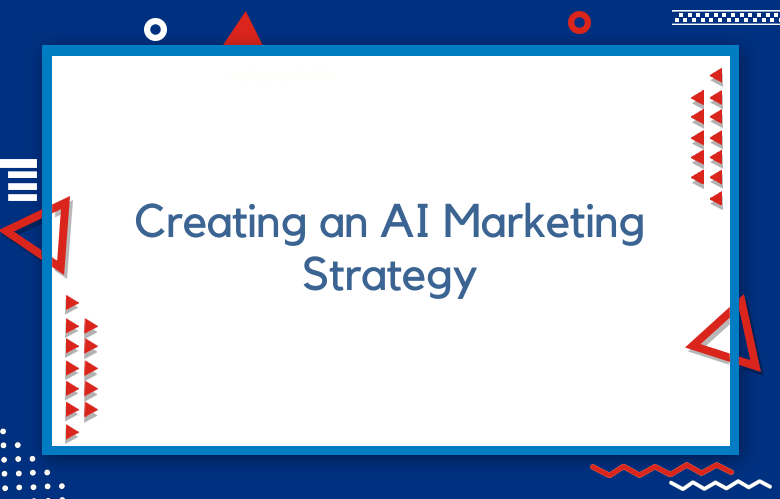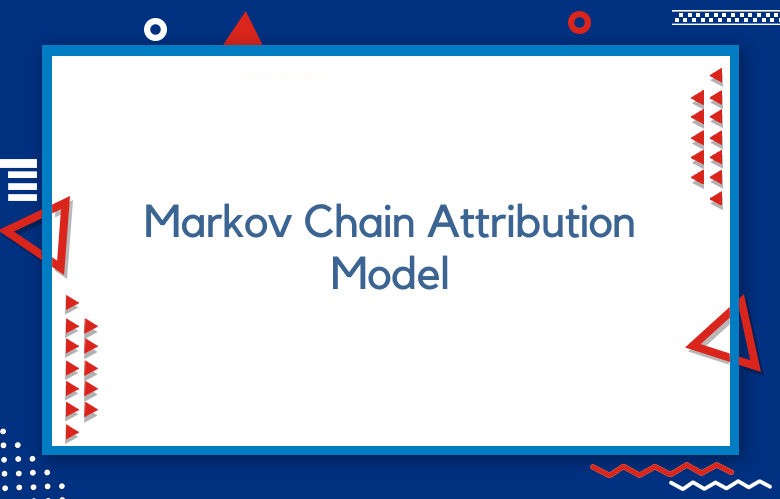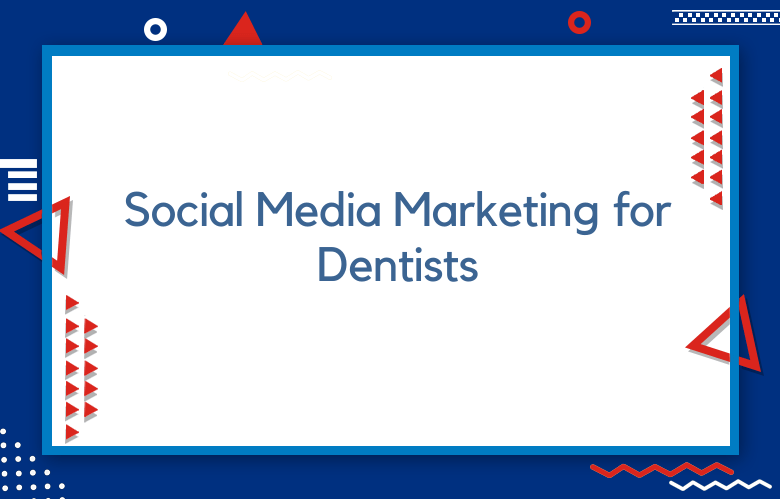Creating an AI Marketing Strategy: Expert Tips and Insights

Artificial Intelligence (AI) is revolutionizing marketing by providing tools and techniques that enable companies to segment their audience better, tailor content to their customers’ needs, and enhance their overall customer experience.
To create a successful AI marketing strategy, businesses must understand their target audience and needs. This can be achieved by collecting data from various sources, such as customer feedback, website analytics, and social media insights. The data can then be analyzed using AI-powered tools to gain deeper insights into customer behaviors and preferences.
Creating an AI Marketing Strategy
Know Your Audience
The first and most crucial step in crafting an effective AI marketing strategy is understanding your target audience better. By conducting thorough market research, you can gain detailed insights into your audience and their buying behavior, which can help you tailor your marketing campaigns and personalize your customer interactions.
AI tools like chatbots, predictive analysis, and machine learning algorithms can help you make more informed decisions about your marketing initiatives.
Leverage Customer Data
You need quality data to power AI tools effectively and gain meaningful insights. By capturing and analyzing customer data, such as browsing history, purchase history, and loyalty programs, you can develop highly targeted marketing campaigns that resonate with your audience and drive sales and engagement.
You can also use the data to predict future trends, identify opportunities, and measure campaign performance, enabling you to continually optimize your strategy.
Automate Tasks
AI can streamline repetitive tasks and free up your team’s time to focus on more complex and strategic initiatives. By leveraging AI technologies such as natural language processing and machine learning, you can automate marketing tasks like email marketing, social media management, content creation, and lead quality scoring.
This way, you can save time and resources and allocate them to other value-adding activities, such as building relationships with prospects and customers.
Foster Creativity
While AI is essential to a successful marketing strategy, it should always maintain the power of human creativity. Fostering innovation and creativity within your marketing team is necessary to remain competitive in the marketing landscape.
Combining AI with human imagination allows you to create customized and scalable campaigns that resonate with your audience, build brand awareness, and drive revenue.
Continuously Analyze and Optimize
Establishing continuous analysis and optimization practices within your marketing strategy is vital. By continually analyzing the data collected through AI tools, you can measure the success of your marketing initiatives, identify weak spots and areas of improvement, and make real-time adjustments to your strategy.
This way, you can stay ahead of the competition and create a more efficient and profitable marketing operation.
Understanding AI Marketing Strategies
Artificial Intelligence, or AI, has changed how we live our lives. It has made our tasks more accessible and more convenient, from ordering food online to getting information in touch.
AI is also transforming the marketing world, with companies and businesses using it to create better consumer experiences. We will explore AI marketing strategies, their benefits for businesses, and their impact on the future of marketing.
AI is a game-changer in the marketing industry. It allows marketers to make data-driven decisions that improve efficiency, productivity, and revenue growth. AI can analyze large sets of customer data and create personalized marketing campaigns that target the right audience at the right time and on the right platform.
It also helps marketers understand customers’ preferences, behaviors, and buying patterns. As a result, AI-powered marketing strategies are more effective and can generate better ROI for businesses.
Maximizing the Potential of AI in Marketing
Artificial Intelligence, or AI, has been making waves in recent years, transforming multiple business industries. One of the sectors that have greatly benefited from AI technology is marketing.
With this breakthrough technology, marketers can leverage data to deliver personalized and targeted content to their customers, increasing customer engagement, brand loyalty, and sales. Explore how AI can benefit your marketing strategy and help you maximize its potential.
Predictive Analytics
AI can analyze customer data to predict future behavior or trends. By leveraging predictive analytics, marketers can highlight trends, identify customer preferences, and plan their marketing tactics accordingly. Predictive analytics allows marketers to make fact-based decisions and helps them maximize their return on investment (ROI).
Natural Language Processing
AI technology, such as Natural Language Processing (NLP), enables marketers to analyze customer feedback, social media interactions, and online reviews. It allows marketers to identify and act on customer sentiment and reactions quickly.
This technology can help marketers craft personalized campaigns and allow two-way customer conversations, resulting in greater customer satisfaction.
Image Recognition
Image Recognition is another AI-driven technology that’s gaining importance in marketing. Image recognition allows marketers to analyze customer-published images and create personalized experiences. AI can identify customers’ interests by analyzing the photos, allowing marketers to show related products and services.
Chatbots
Another example of AI in marketing is the use of chatbots. Chatbots allow marketers to provide better customer service through automated responses. People prefer messaging over the phone support, and chatbots enable brands to meet customer needs in real-time. Moreover, they allow companies to deliver proactive customer service that enhances the customer experience.
Personalized Recommendations
Lastly, AI-driven recommendation systems can predict what products and services interest customers. This technology collects data from customer interactions and generates personalized product recommendations during the browsing or shopping experience.
This type of customization increases customer loyalty as they become more engaged with brands that provide tailored experiences.
Developing an Effective AI Marketing Strategy
Artificial Intelligence (AI) has revolutionized the marketing industry in recent years. With the ability to analyze data and consumer behavior patterns, AI has become a powerful tool for businesses to gain a competitive edge.
However, developing an effective AI marketing strategy is the key to success. We will explore the steps necessary to create and implement a successful AI marketing strategy to optimize your marketing efforts and increase your bottom line.
Identify Your Goals and Objectives:
The first step in developing an effective AI marketing strategy is identifying your goals and objectives. What are you trying to achieve? Are you looking to increase sales, improve website traffic, or expand your customer base? Once you determine your goals, you can then focus on developing an AI marketing strategy that aligns with your objectives.
Collect Data and Analyze Consumer Behavior:
The next step is to collect data and analyze consumer behavior. AI tools can help you collect data from various sources, including social media, website traffic, and customer feedback.
Analyzing this data lets you gain insights into consumer behavior patterns and preferences. This information can then be used to develop targeted marketing campaigns that resonate with your audience.
Implement Personalized Marketing Campaigns:
AI enables businesses to create personalized marketing campaigns tailored to individual customer preferences. Using AI tools to analyze consumer behavior, you can deliver targeted messages and offers that resonate with your audience. Personalized marketing campaigns have been proven to increase engagement and conversions, ultimately leading to higher sales.
Monitor and Optimize Your AI Marketing Strategy:
Once you have implemented your AI marketing strategy, monitoring and optimizing your campaigns to ensure maximum effectiveness is essential. AI tools provide real-time data and insights that can help you track your campaign’s performance. This information can then be used to make informed decisions and optimize your marketing efforts for better results.
Partner with an AI Marketing Expert:
You must partner with an AI marketing expert who can help you navigate the complex world of AI marketing. An expert can provide valuable insights and recommendations to help you develop and implement an effective AI marketing strategy. They can monitor your campaigns and provide ongoing optimization to ensure maximum success.
Harnessing the Power of AI for Marketing Success
The world is rapidly moving towards artificial Intelligence (AI) and machine learning (ML) in all aspects of business. One such implementation is in the field of digital marketing.
AI has become an integral part of marketing strategies in recent years, as it can help businesses gather valuable insights and make better decisions. We will discuss the benefits of utilizing AI in digital marketing and how it can help companies achieve marketing success.
Personalization of content:
One primary way AI is changing digital marketing is through personalization of content. With AI, businesses can analyze user data, such as browsing history and previous purchases, to provide personalized content and offers.
Personalization can significantly improve customer engagement and conversions, as customers are more likely to respond positively to content that resonates with them. It can also lead to higher customer retention rates, increasing business revenue.
Better targeting of audience:
AI can also help businesses target the right audience for their products or services. By studying user data, AI algorithms can identify patterns and insights that can assist in creating targeted ads and campaigns to attract potential customers. This leads to a more effective use of advertising budgets and a higher ROI.
Improved customer service:
AI can also improve customer service through chatbots and AI-powered assistants. Chatbots can efficiently handle customer queries and concerns 24/7, leading to quick and satisfactory resolution of issues. Moreover, chatbots can provide personalized recommendations, further enhancing the customer experience.
Data analysis:
The amount of customer data generated is increasing exponentially with each passing day. AI tools can effectively process and analyze this vast amount of data, leading to valuable insights and informed decisions. Businesses can track customer behavior, preferences, and interests to understand the market better. This leads to more targeted campaigns and offerings and a better overall marketing strategy.
Automation of repetitive tasks:
AI can also help automate repetitive tasks like data entry, scheduling, and reporting. This can free up the marketing team’s time, enabling them to focus on more pressing matters and creativity. Automated tasks are also more efficient and accurate, reducing the chances of errors and inconsistencies.
Advancing Your Marketing Efforts with AI
Artificial Intelligence (AI) is revolutionizing marketing. It is enabling marketers to increase efficiency and drive better business results.
Through AI technologies, marketing teams can better understand customer behavior and preferences, personalize marketing messaging more effectively, and optimize campaigns. In this article, we’ll discuss ways you can use AI to advance your marketing efforts.
Personalization:
AI lets you personalize your marketing messaging by analyzing customers’ behavior, preferences, and responses to different marketing stimuli. Machine learning algorithms can segment the target audience to understand individuals’ content and match it with the right messaging and personalized offers.
AI-based tools can also improve email marketing response rates by optimizing email subject lines, content, and timing. For example, you can use customer data to customize email content, images, and CTAs.
Predictive Analytics:
AI makes it possible to predict future customer behavior and marketing trends more accurately. Predictive analytics can identify patterns to predict specific customer actions, such as buying behaviors.
AI-powered marketing tools can analyze historical data to predict which products or services will be offered to customers at the right time. Data-driven insights can help you make better-informed marketing decisions, such as which campaigns to run and which strategies to adopt.
Chatbots:
Chatbots are AI-powered virtual assistants that can engage with customers in real time through messaging applications. The chatbot can converse with customer inquiries and offer recommendations based on the data collected from the customer’s previous interactions.
Customizable chatbots can provide personalized advice based on the customer’s goals and needs. This provides adequate customer support and encourages customer satisfaction and loyalty.
Image and Video Recognition:
AI has enabled marketers to use image and video recognition technologies to analyze text, audio, and images, helping to enhance the customer experience.
AI recognizes and then implements data about customer behavior, tastes, and preferences through the analysis of images and videos present on social media platforms. This helps you understand the customers’ language, which can help you recognize which marketing strategies would have the best impact.
Ad Optimization:
AI’s contribution to ad optimization can never be overemphasized. Google and Facebook both use AI to optimize the ad experience for users. In addition, AI can assist you in seeing the best-performing ads and the expected optimal bids. That means you can create better-designed ads, target the customers you prioritize, and save money over time.
The Current State of AI in Marketing
Artificial Intelligence (AI) can change the marketing game forever. Using analytics, machine learning, and predictive modeling, AI provides marketers with valuable insights into consumer behavior, enabling them to make better decisions and optimize their campaigns.
AI is revolutionizing marketing, and businesses that adopt it are gaining a competitive edge. In this article, we’ll explore the current state of AI in marketing and how it’s changing the landscape.
Personalized Targeting
One of the most significant advantages of AI in marketing is its ability to personalize targeting. AI algorithms are designed to analyze consumer behavior and patterns, enabling businesses to create personalized content that appeals to their target audience.
By understanding consumer preferences, demographics, and engagement patterns, brands can tailor their marketing messages and develop more effective campaigns that generate high conversion rates.
Predictive Analytics
In predictive analytics, AI can help brands forecast the future based on current insights. AI can predict consumer trends and behaviors with machine learning and data analysis.
This means that businesses can make informed decisions about where to invest their resources, how to allocate their budget, and what products are more likely to sell in the future. Predictive analytics helps streamline marketing operations and ensures businesses are more effective with their campaigns.
Omnichannel Marketing
AI is helping businesses adapt to the changing landscape of customer interactions. Customers want to receive information and content across multiple channels, and AI can help companies to achieve this goal.
AI-powered chatbots and voice-activated assistants can personalize and make the customer journey seamless. AI-powered marketing tools can also help optimize the customer experience across all channels, increasing product sales, brand awareness, and customer loyalty.
Content Creation
Creating high-quality content is essential for any successful marketing campaign. With AI, businesses can produce accurate, engaging, and unique content.
With machine learning and natural language processing, AI can create content relevant to a specific audience. It can also create engaging video content, image captions, social media posts, and more, making the content creation process faster, more efficient, and more cost-effective.
Categorizing AI Applications in Marketing
Artificial Intelligence (AI) has revolutionized the marketing world by enabling enterprises to identify customer insights and drive business growth efficiently. AI has enabled companies to develop and implement personalized marketing strategies, identify potential target audiences, and forecast marketing campaign performance.
Artificial Intelligence enhances marketing operations and streamlines sales by providing valuable insights into customer behavior. Discuss the various categories of AI applications in marketing and how they impact business operations.
Customer Experience Enhancement
AI allows marketers to create personalized marketing strategies that cater to different segments of the target audience. By analyzing customers’ buying behavior, demographics, and psychographics, AI can recommend products and services most suitable for a particular customer.
AI also interacts with customers to understand their preferences and optimally make suggestions that satisfy their needs. Chatbots, virtual intelligence assistants, and digital personal shoppers are typical AI applications enterprises use to enhance the customer experience.
Predictive Analytics
Predictive analytics is an AI application that uses data mining, machine learning, and algorithms to forecast the future performance of marketing campaigns.
Predictive analytics helps in decision-making by providing insights into customer behavior patterns, identifying opportunities for upselling, reducing churn, and improving sales strategies. Marketers can use predictive analytics to determine the most profitable customer segments and develop targeted promotional campaigns.
Benefits of Integrating AI into Marketing Systems
Although artificial Intelligence (AI) is a relatively new concept, it’s quickly becoming a tool that companies can’t afford to ignore. With AI, marketers can gather actionable insights that help them make data-driven decisions and ultimately drive better results. Today, we’ll discuss the benefits of integrating AI into marketing systems and how businesses can harness its power to unlock new levels of growth.
Data Analysis
At its core, AI is a potent data analysis tool. It can study vast amounts of customer data quickly, identifying trends and patterns that might be challenging for humans to remember.
When integrated into a marketing system, AI can analyze customer behavior, demography, and preferences to create a comprehensive picture of your target audience. AI’s insights can help businesses identify new market opportunities, better understand their competition, and optimize their products and services.
Personalization
Personalization is a buzzword used all over the marketing industry and for a good reason. Customers want to feel special, and personalization helps businesses create a tailored customer experience.
Fortunately, AI can help companies to develop and offer personalized experiences that exceed customer expectations. With AI, marketers can segment customers based on identifiable traits and behaviors, recommend products, suggest services, and even create content tailored to each customer.
Customer service
Today, customer service is the paramount focus of any reputable business. Companies that provide excellent customer service stand out, earn more customer loyalty, and drive growth.
Integrating AI helps automate customer service and create an efficient and personalized experience. AI-powered chatbots, for example, can provide quick and helpful responses to common questions, even when support agents are unavailable.
Predictive analytics
One of AI’s most potent benefits is its ability to use predictive analytics to determine future behavior based on past patterns. Predictive analytics can help marketers anticipate what customers want before they know they want it, offering a significant competitive advantage. AI can also help with lead scoring, allowing marketers to identify the best leads to follow up on first and close deals faster.
Marketing automation
AI can help automate several marketing tasks, freeing up time for marketers to focus on bigger-picture items. Marketing automation is ideal for jobs that require significant data analysis, like A/B testing, post-campaign analysis, and sorting through large amounts of customer data.
Fortunately, AI can run these analyses much faster than humans, helping marketers optimize processes and quickly respond to market changes.
Implementing AI for Task Automation in Marketing
Marketing is an integral part of any business, and the success of a marketing campaign depends not only on creativity and Intelligence but also on efficient execution.
With the advent of Artificial Intelligence (AI), marketers can automate tasks, leading to increased productivity, reduced workload, improved customer engagement, and ultimately, a better return on investment. I will explore the benefits of implementing AI for task automation in marketing and how it can revolutionize our thoughts about marketing.
Increased Productivity
Implementing AI in marketing can significantly increase productivity by automating mundane and repetitive tasks. AI algorithms can be trained for data entry, analysis, content creation, and social media scheduling tasks.
This frees up valuable time for marketers to focus on more critical tasks such as strategy, innovation, and creativity. Increased productivity can lead to better ROI for businesses, as marketers can respond to market trends and customer needs more quickly and efficiently.
Reduced Workload
One of the most significant benefits of AI in marketing is the reduced workload for marketers. AI algorithms can streamline workflows and reduce the number of tasks that must be performed manually.
For example, AI can automate sending emails to customers, creating social media posts, and analyzing data, freeing marketers to focus on high-level strategy and creativity. This reduced workload can lead to a better work-life balance for marketers and a more positive company culture overall.
Improved Customer Engagement
AI can also improve customer engagement by providing personalized experiences and targeted messaging. AI algorithms can analyze customer data and behavior to create customized recommendations and content that resonates with individual customers. This personalized approach can increase customer satisfaction, loyalty, and, ultimately, higher conversion rates.
Considerations and Risks in Marketing AI Implementation
Artificial Intelligence (AI) is rapidly changing the way we do marketing. From automating tedious tasks to understanding consumer behavior to generating personalized content, AI allows marketers to achieve more significant results with decreased effort. But before you jump onto the AI bandwagon, it’s vital to consider some associated risks.
AI implementation can be tricky and expensive; ignoring these risks could harm your business. In this in-depth guide, we’ll explore some of the crucial considerations and risks of implementing AI in your marketing strategy and how to mitigate them effectively.
The risk of bias in AI algorithms:
AI algorithms are designed to learn from data, and this can create bias in the decision-making process. Prejudice can lead to discrimination, which can harm your brand’s reputation.
For instance, an AI system that uses historical data that reflects the bias of the majority of consumers can lead to excluding minority groups. To avoid such risks, it’s crucial to test your AI algorithms thoroughly and ensure they’re unbiased.
Data security and privacy risks:
Personalization and targeted marketing rely on data collection, processing, and storage. With AI, the data collected is far more extensive and sophisticated than traditional methods.
Therefore, it’s essential to pay attention to the security and privacy of this data. If a security breach occurs, your customer’s data is compromised, which can negatively impact your brand’s reputation. It would help to have proper protocols for storing, processing, and handling personal data.
The cost of implementation:
Implementing AI can be expensive, becoming problematic if the results aren’t worth the investment. Therefore, it’s vital to understand clearly what you wish to accomplish with AI. Consider the implementation, maintenance, and training costs and compare that to the ROI. Implementing AI just because it’s trendy can waste resources and hurt your business in the long run.
AI is not a replacement for humans:
AI is designed to augment human capabilities, not replace them. It can handle tedious and monotonous tasks and generate data-driven insights. However, it cannot replace human intuition, empathy, or creativity. Therefore, it’s crucial to understand what AI excels at and what it cannot do. This will help you manage expectations and ensure you get the most out of AI.
Complex Integration with existing systems:
When integrating AI into your marketing strategy, ensuring it works well with your existing systems is essential.
Integration can be complex, and not all AI solutions can integrate seamlessly with existing systems. Therefore, it’s necessary to test the AI system thoroughly before implementing it to avoid any technical problems that may pose a risk to your business.
Conclusion:
AI marketing is a game-changing technology that can revolutionize businesses’ marketing strategies and yield significant benefits. With careful planning, implementation, and continuous optimization, companies can leverage AI marketing to drive growth, enhance customer experience, and stay ahead of the competition.
AI has revolutionized the marketing industry, providing businesses powerful tools to optimize and personalize their campaigns. Its benefits include improved efficiency, better customer relationships, and increased ROI.
We expect to see even more innovative marketing strategies as AI technology improves. By embracing AI marketing strategies, businesses can stay ahead of the competition and create better customer experiences that drive growth and success.
Call: +91 9848321284
Email: [email protected]



